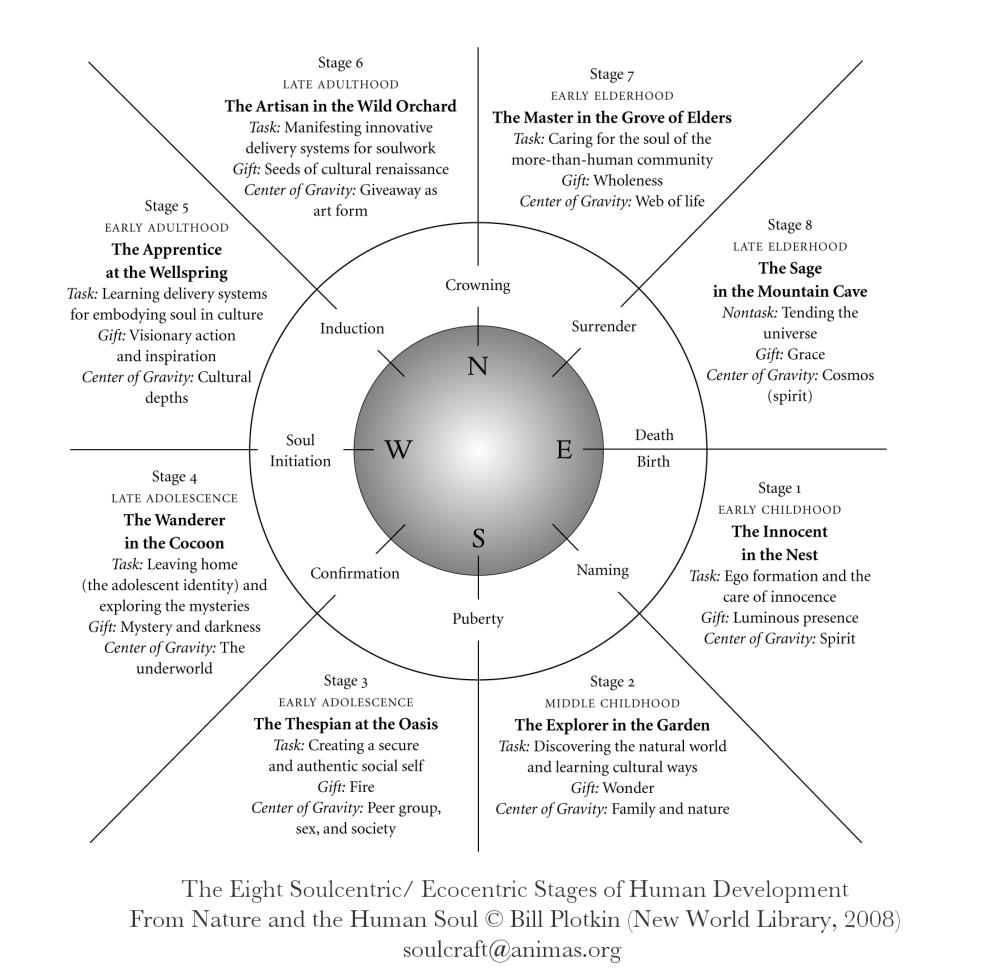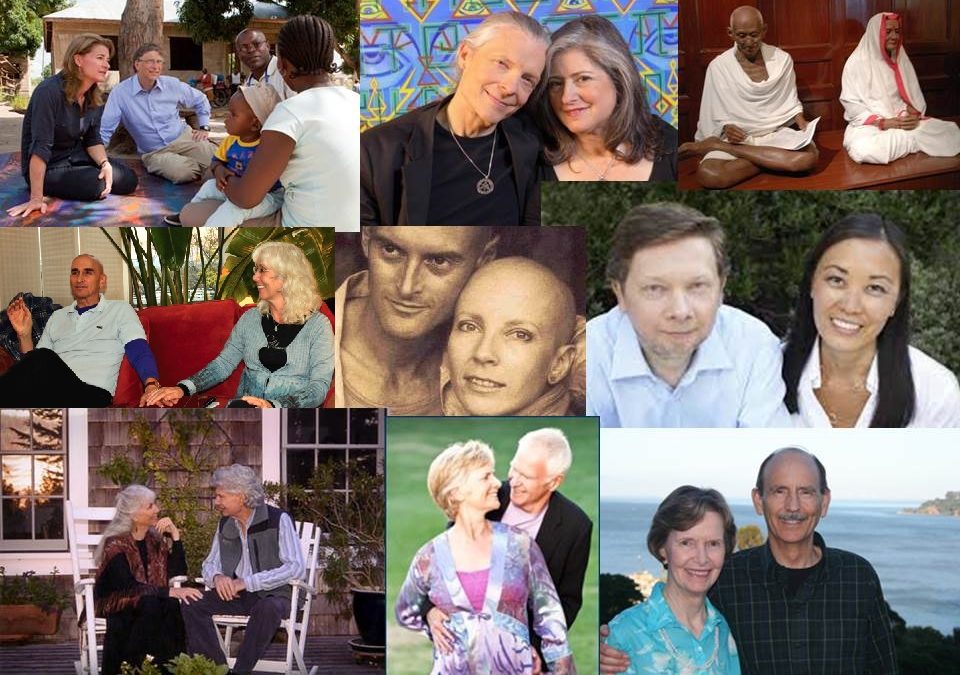When we start living our Transcendental Purpose (TP) we will naturally feel attracted to, and attract people who share it.
This is the point where understanding the different stages of maturity, altitude, depth, and calling become crucial. Otherwise, we may connect with a group or get into a love relationship with a partner who simply tries to adopt our TP even though it is not aligned with their TP, or their expression is at a different stage.
Stages of Maturity:
I adopted the idea of the stages of maturity from Bill Plotkin. He spent over 25 years developing eight Soulcentric/Ecocentric Stages of Human Development or maturity as shown in the image below.

Sex Purpose Love Figure 48, Page 295 Plotkin’s eight soulcentric stages of human development
Plotkin describes the eight stages in the outer part as follows:
- Early childhood (the Nest) forms the foundation for later soul discovery through the preservation of our original innocence and our innate relational intelligence, as well as through the development of a healthy culture-rooted ego.
- Middle childhood (the Garden) affords us the opportunity to learn the enchantment of the natural world (including sexuality during puberty) as well as the intricate cultural ways of our people.
- Early adolescence (the Oasis) teaches us to balance authenticity with social acceptance, which allows us to show up in the world with integrity.
- Late adolescence (the Cocoon) is a time of withdrawal from the everyday social world as we leave behind our adolescent beliefs about ourselves and the world, and seek our unique gifts of the soul (natural talents) to bring them to our community.
- In early adulthood (the Wellspring), we appreciate our soul work in its specific form (identifying our natural talents) and learn the art of bringing our particular gifts into the world (enacting our Transcendental Purpose).
- In late adulthood (the Wild Orchard), we learn to embody our soul (Transcendental Purpose) in ever more creative, abundant, and generative ways, through forms of our own creation.
- In early elderhood (the Grove), our primary focus shifts to mentoring and initiating the youth and helping to maintain the delicate balance between the human social and natural world before surrender marks the release of the goal-oriented ego, which opens the way to the final stage.
- Late elderhood (the Mountain Cave), is a time when we yield to the impulse to turn to the mysterious tending of the evolving universe itself.[i]
Being in the same stage of “soul” maturity when sharing our Transcendental Purpose with a partner, and advancing with that partner through the various stages, is essential for a successful Integral Love Relationship.
Altitude:
Altitude is a key contributing factor in the impact that enacting our Transcendental Purpose will have on the world. By “altitude” in this context we mean a combination of our level of consciousness with (1) how far-reaching into the world our considerations for others go, (2) how rich of a historical awareness we bring to our efforts, (3) how far into the future our concerns reach, and (4) how infused our work is with intentional caring for others.
Depth:
Depth determines how living our Transcendental Purpose either impacts the gross material or physical realms, the subtle mind, and intentional levels, the causal meaning-making structures that are informed by feeling and intuition, the pure witness of direct or immediate experience, or the level of non-dual awareness which entails all the previous levels including the self or pure witness.
Calling
Our calling is to maintain, improve, or create. We may feel called to maintain something which already exists and creates more goodness, truth, beauty or functioning, and we do so by stepping into someone else’s footsteps or religious lineage. Or we feel called to improve something that already exists. Or perhaps we feel called to advance into novelty by creating something totally new.
Watch the Video at https://youtu.be/9TbH90IFX7A

